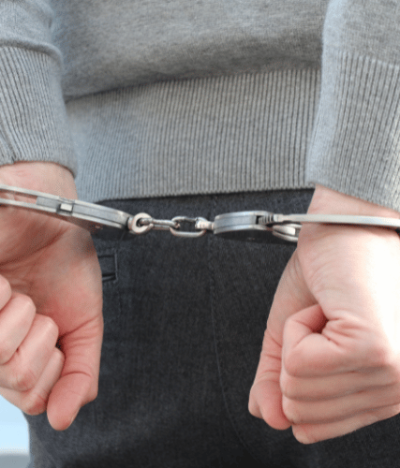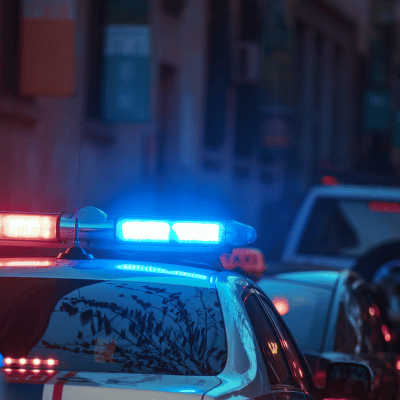Florida has been hit hard by the opioid epidemic sweeping across the United States. Opioid overdoses claimed the lives of over 5,000 Floridians in 2020 alone. The rise in opioid addiction and overdoses in Florida can be traced back to the late 1990s, when pharmaceutical companies began aggressively marketing and promoting opioid painkillers like OxyContin. This led to a dramatic increase in opioid prescriptions, and many patients became addicted. As prescriptions became harder to obtain, many turned to cheaper and more potent opioids like heroin and illicitly manufactured fentanyl. By 2017, opioid overdoses had become the leading cause of accidental death in Florida.
The human toll of the opioid crisis has been devastating for individuals, families and communities across Florida. Those with opioid use disorder face stigma, social isolation, unemployment, homelessness and other challenges. The epidemic has also placed a heavy financial burden on Florida’s healthcare system, child welfare system, criminal justice system and economy overall. In response to this public health emergency, Florida has implemented various measures to try to curb opioid misuse and expand access to addiction treatment. A key piece of legislation has been the Hal S. Marchman Alcohol and Other Drug Services Act.
Overview of the Marchman Act
The Marchman Act, passed in 1993, provides for voluntary and involuntary addiction treatment in Florida. Specifically, it allows for court-ordered assessment, stabilization and treatment of individuals impaired by drugs or alcohol. It is named after Hal S. Marchman, a recovery advocate and member of the Florida House of Representatives who championed the legislation. The Marchman Act establishes procedures for families, healthcare providers, law enforcement and others to intervene when someone’s substance use poses a serious threat to their own welfare or public safety.
The Marchman Act allows for emergency admission and short-term involuntary detention for substance abuse assessment and crisis stabilization. This initial period, not to exceed 5 days, gives time for a thorough evaluation. The act provides due process protections, requiring a court hearing for longer-term treatment. At the hearing, a judge determines if the person meets statutory criteria for involuntary treatment. The judge may then order involuntary treatment, usually in a residential facility, for up to 90 days. Treatment cannot be extended without another court order.
Involuntary admission should only be used as a last resort for individuals incapable of recognizing their need for treatment due to impairment. The goal of involuntary treatment is to stabilize the person and engage them in longer-term voluntary treatment. Accordingly, the Marchman Act also authorizes voluntary admission for substance abuse assessment and treatment. Treatment facilities must notify patients of their right to leave voluntary treatment at any time.
Expanding Access to Addiction Treatment
The Marchman Act expanded access to addiction treatment in several important ways. First, it recognized substance use disorders as illnesses requiring treatment rather than criminal offenses. Second, it took the step of allowing involuntary commitment, which remains controversial but proponents argue it can save lives. Third, the act requires counties to provide addiction treatment services and expanded state funding. Finally, it prohibited discrimination against those seeking voluntary treatment.
Marchman Act Receiving Facilities and Ongoing Treatment
Florida counties now fund and operate Marchman Act receiving facilities to conduct emergency intake and stabilization. Referrals come from hospitals, crisis units, detox facilities, families and law enforcement. Receiving facilities provide medical care, observation, substance abuse assessment and discharge planning. They help bridge the gap between crisis and ongoing treatment. Separate addictions receiving facilities serve children and adults due to their differing needs.
After intake and stabilization, the next step is referral to appropriate treatment providers. This could include outpatient counseling, intensive outpatient treatment, residential treatment, medication-assisted treatment and recovery support services. The Marchman Act authorized increased funding at the state level for county and regional addiction treatment services. The Florida Department of Children and Families oversees the service system, which consists of over 300 organizations around the state.
Assessing the Effectiveness and Gaps
Studies on the effectiveness of involuntary commitment for substance use disorders have shown mixed results. Some research indicates it increases treatment initiation and retention. However, effects tend to be modest and short-lived. Critics argue coercion undermines long-term recovery. They emphasize the need for expanded voluntary treatment funding and capacity. Florida’s treatment system remains underfunded and overburdened. A shortage of providers significantly limits treatment access even for those who desire it.
While not a cure-all, the Marchman Act provides an essential tool that Florida has used to expand addiction treatment. Thousands of Floridians complete Marchman Act stabilization programs each year. Many go on to voluntary treatment and successful recovery. Florida has worked to strengthen coordination between Marchman Act receiving facilities, treatment providers and recovery organizations. But major gaps remain, including insufficient treatment funding and workforce.
Looking Ahead
Going forward, Florida must continue efforts to build a comprehensive, evidence-based addiction treatment system. This should prioritize voluntary engagement and high-quality, long-term care. Attention is needed to address barriers like cost, transportation and stigma. A key component is expanded medication-assisted treatment, which is proven highly effective but remains limited and controversial. Better integration of addiction treatment, primary care, mental health and social services is also essential.
Florida’s opioid epidemic emerged from the overprescribing of pain medication. Strategies to prevent future crises must include prescriber education and monitoring programs. A public health approach should replace criminalization of drug use. Harm reduction measures like naloxone access and needle exchanges save lives but require greater support. While the Marchman Act remains necessary, involuntary treatment should be carefully reserved for extreme cases. Broader investments in voluntary treatment and societal buffers are critical to reducing substance misuse and supporting long-term recovery.
FAQS
FAQ 1: What does the Marchman Act allow for?
The Marchman Act is a Florida law that provides for court-ordered substance abuse assessment and treatment in certain situations. It allows for both voluntary admission and involuntary commitment to addiction treatment through a legal petition process.
FAQ 2: When can a Marchman Act petition be filed?
A Marchman Act petition may be filed when an individual’s alcohol or drug addiction poses a serious threat to their own welfare or the safety of others, but they refuse voluntary treatment. Specific criteria must be met related to addiction impairment, self-harm, public harm, and prior treatment history.
FAQ 3: Who can file a Marchman Act petition?
Florida law allows Marchman Act petitions to be filed by a qualifying spouse, parent, child, guardian, doctor, treatment provider, or other relative in some cases. The petitioner must provide documentation of the individual’s substance abuse and treatment needs. An experienced Marchman Act attorney can advise if you meet requirements.
Call us for a Free Consultation
The compassionate Florida Marchman Act attorneys at The Law Offices of Michael T. Rabideau, P.A. can help with those families that are struggling with a loved one caught up in addiction. Their skilled legal guidance provides a path to treatment and recovery.
Attorney Michael T. Rabideau brings over 20 years of experience in criminal defense and Marchman Act law. He understands addiction as a disease requiring professional treatment, not moral judgment. His firm aims to save lives through legal intervention when substance abuse becomes severe.
The Marchman Act provides families and loved ones legal means to get intensive help for someone unable or unwilling to recognize their need for treatment. The seasoned attorneys at The Law Offices of Michael T. Rabideau, P.A. handle Marchman Act petitions with care and expertise.
Michael T. Rabideau is a member of the Florida Association of Criminal Defense Lawyers. He’s AV-Preeminent Peer Review Rated by Martindale-Hubbell, indicating the highest level of professional excellence. Rabideau appears frequently as a legal analyst on major television networks.
With offices in West Palm Beach, Wellington and Boca Raton, the firm serves clients throughout Palm Beach County. Attorney Rabideau’s passion for helping individuals find the treatment they need is evident in every case he takes on. His aggressive legal advocacy has achieved life-changing results for numerous Florida families.
The Marchman Act can provide a legal intervention if someone’s substance use poses a serious threat but they refuse voluntary treatment. The skilled Marchman Act attorneys at The Law Offices of Michael T. Rabideau, P.A. offer honest assessment and strong legal counsel. They work closely with local treatment centers to build a customized plan focused on rehabilitation and recovery.
To learn more about your rights and options under Florida’s Marchman Act, call The Law Offices of Michael T. Rabideau, P.A. today at (561) 820-4848 for a free consultation. Their unwavering advocacy provides hope for addicts and families struggling with substance abuse.
[/et_pb_text][/et_pb_column][/et_pb_row][/et_pb_section]






